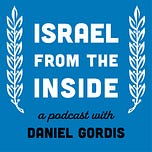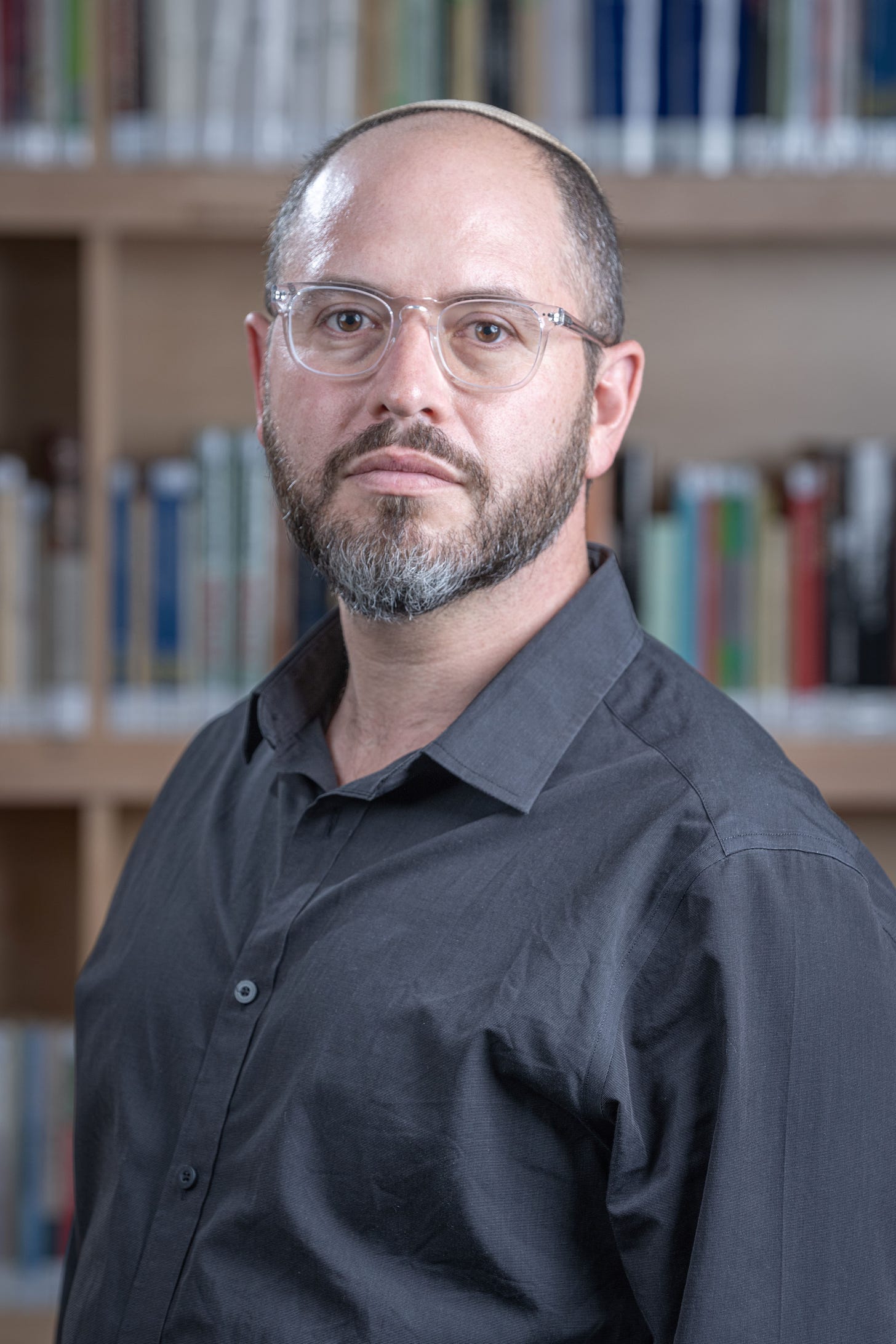From its very inception almost two years ago, Israel from the Inside has been about providing an insider’s look at Israel that is not focused exclusively on politics, conflict or any of the other subjects that commonly interest the English press. As our long-time readers and listeners know, we’ve focused on art and museums, books and libraries, songs and musicians, literature and authors—all as a way of providing a more nuanced lens into the mosaic of people and views that make up Israeli society.
In recent months, of course, our attention has naturally been pulled towards what many people consider the gravest internal crisis that Israel has ever faced—the issue of judicial reform or regime change. We’ve heard from supporters and opponents, we’ve read papers by some of the leading experts, designed to help us understand what is at stake and why even many opponents of the reforms that were proposed fervently believe that some judicial reform is long overdue.
Though the world in which we live leads many of us to instinctively think that this is an issue of “left versus right,” we’ve sought to show that that is not the case here. The Likud is hemorrhaging voters to the center, many on the left do support some judicial reform, and many on the right are opposed to the proposals of Levin and Rothman. More than Left (or Center, now that the left is moribund) versus right, this is about many divides in Israeli society. Among those divides, as a number of our guests have noted, is the relationship between Ashkenazim and Mizrahim.
With that in mind, we present today a conversation from earlier this week with Rabbi Mishael Zion, a community rabbi in Jerusalem, the author of one of Israel’s most popular Haggadot (about to come out in a 20th anniversary edition) and one of the most thoughtful people out there about culture in Israeli life. We spoke with Mishael about culture in Israel in general, some of the key differences between Mizrahi and Ashkenazi culture, especially as reflected in music, and what he sees coming down the pike in Israeli culture—and what that will mean for Israel.
Rabbi Mishael Zion is a faculty member of the Mandel Leadership Institute. He was the founding director of the Mandel Program for Leadership in Jewish Culture, where he currently serves as a faculty member dedicated to the leadership development of fellows and graduates in the fields of culture, media, and community in Israel.
Mishael is the author of Esther: A New Israeli Commentary (2019) and is the co-author of Halaila Hazeh: An Israeli Haggadah (2004) and A Night to Remember: The Haggadah of Contemporary Voices (2007), together with his father, Noam Zion. Born and raised in Jerusalem, Mishael is a founder of the Klausner Minyan, a partnership minyan in Talpiot, where he lives with his wife and four daughters.
Mishael holds a bachelor’s degree in sociology and Jewish thought from the Hebrew University of Jerusalem, and rabbinic ordination from Yeshivat Chovevei Torah Rabbinical School in New York. He has served as a faculty member at the Shalom Hartman Institute in Jerusalem and North America, and has been a visiting scholar at the New York University School of Law and the Center for Israel Studies at the University of California, Berkeley.
The link above will take you to a brief excerpt of our conversation; the full conversation, along with a transcript for those who prefer to read, is being made available to paid subscribers to Israel from the Inside.
For those interested in learning more about the books, haggadot and musical artists mentioned by Rabbi Mishael Zion in this podcast, Haley Weinischke, co-producer and editor of Israel from the Inside has prepared the following links and resources:
Links to Mishael Zion’s Haggadot:
Recent column by Mishael Zion in Times of Israel: Choosing Israel
The following are a few of the many musicians that Mishael mentions in our conversation. For those who would like to get a sense of their music, we’ve included links to a well known song of each.
Berry Sakharof — In 2009, Berry released a concept album called Ibn Gabirol, based on the lyrics of Solomon Ibn Gabirol, one of the greatest Hebrew poets of the Middle Ages. You can listen to the album on Spotify here or on YouTube where most of the songs are available.
Sarit Hadad — Kmo Cinderella [Like Cinderella]
Dudu Tassa — Lola; and here’s a song from Dudu’s album “Dudu Tassa & The Kuwaitis”, which is a combination of Dudu and recordings of his grandfather Daoud Al-Kuwaiti and Dudu’s uncle Saleh (known as the Al-Kuwaiti Brothers from Baghdad).
Hanan Ben Ari — Cholem Kmo Yosef [Dream Like Joseph] and one of Hanan’s most popular songs Im Tirtzi [If You Want]
Eviatar Banai — Ad Mahar [Until Tomorrow]
Ishay Ribo — Seder Ha'Avodah [The Avodah Service]. We’ve also discussed Ishay Ribo’s music in previous columns, which you can read here and here.
Music credits: Medieval poem by Rabbi Shlomo Ibn Gvirol. Melody and performance by Shaked Jehuda and Eyal Gesundheit. Production by Eyal Gesundheit. To view a video of their performance, see this YouTube:
Our twitter feed is here; feel free to join there, too.













